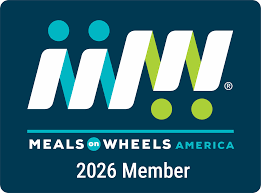By submitting my application to use a community garden plot at the Grayling Community Garden (GCG) in 2024, I understand and agree to the following:
- I will use my plot to cultivate and maintain a personal organic garden.
- I will primarily use my plot to grow plants for my household to use.
- Plot usage is non-commercial (I will not sell anything I grow, processed or raw)
- Plot usage is non-transferable (I will not sublease my plot)
- The month of May will be used for garden maintenance and to prepare for the upcoming season from June 1, 2024 – October 31, 2024.
- I agree to dedicate 5 hours or more of volunteer time to the overall maintenance of the garden.
- I will pay my plot usage fee in full before I begin gardening my plot. There is a $25.00 fee for each garden plot. Scholarships are available for those unable to pay the $25.00 fee.
- I will garden organically and follow best practice gardening guidelines set forth by GCG. (See Attachment A: Grayling Community Garden Guidelines)
- I will maintain my plot to be reasonably visually appealing at all times.
- My plot will be actively cultivated at least from June 1, 2024- October 31, 2024
- Garden Plots must be kept free of weeds, pests, and disease, without the use of synthetic herbicides, fungicides, or pesticides.
- All plants must be kept within the limits of your plot.
- All gardeners will keep walking paths and surrounding areas clean, neat, and weed free.
- Weeds shall be disposed of in the designated garbage bins.
- I will pack out my own trash because garbage service is not included in this agreement.
- I will not install any fixtures (like fences) in or around my plot. Seasonal trellises with the primary purpose of supporting vegetative plant growth are allowed.
- I am responsible for and have access to my plot from the date it is assigned to me, until October 31, 2024.
- I will not plant any illegal plant or marijuana.
- It is strictly prohibited to take food or plants from other garden plots. Doing so will result in immediate removal from the garden and no refund will be given.
- I will make my best effort to leave my plot in as good, or better, condition as it was when it was first assigned to me. All gardeners must clear their garden beds by November 1st.
- I understand that anyone who gardens in my plot is required to be a member. If multiple people (family members, friends, etc.) will be gardening in the plot each person is required to be listed on the registration form as a Garden member. I will not allow non-members to help me garden in my plot.
- I will work to keep the garden a happy, secure, and enjoyable place where all participants can garden and socialize peacefully in a neighborly manner.
- Guests (including children) may enter the garden only if they are accompanied by a registered gardener. Children must always be supervised. Registered gardeners are responsible for the behavior of their guests.
- I will respect all gardeners, their guests, and the Community Garden Grounds.
- Abusive, profane, or discriminatory language or actions will not be tolerated.
- I will follow all applicable laws and not smoke, drink alcoholic beverages, use drugs including marijuana, or gamble on the Community Garden grounds, and will not come to the Community Garden under the influence of alcohol, marijuana, or illegal drugs.
- I will not bring weapons to the Community Garden.
- I will not bring pets or other animals to the Community Garden.
- I will be considerate of others when playing music.
- I understand that my plot is not private property. All items, plants (in ground or in containers), and infrastructure left at the GCG, whether during the garden season or over the winter, are left at my personal risk of theft or damage. After the garden closing date, all items must be removed or will be removed by the GCG leadership.
- I do not expect any form of reimbursement, compensation, or other tangible benefits returned to me for time, materials, or monetary investments I make as a GCG gardener.
- I will not attempt to hold GCG responsible for weather, construction, personal health, or any other factors that affect my ability to garden as planned.
- I agree to water responsibility to conserve fresh water & our sensitive irrigation system.
- Access to irrigation water is not guaranteed at any point. (Water is typically operational starting in May, ending in October.)
- Water from the hose behind the garden shed is potable. I will turn the water off and lock the access when done.
- I will lock the garden entrance with the combination lock provided when I leave.
- I understand that GCG garden management policies may change without notice, and I agree to comply with these changes as they are established. I will stay up to date on policies by reading GCG email newsletters in a timely fashion. These newsletters may also include event information, gardening tips, etc.
- I will notify GCG if I must abandon my plot before the end of the season. If GCG notices a plot is not being maintained or appears to be abandoned, GCG will contact the member. If the GCG is unable to reach the member or GCG is unable to assist the member to maintain the plot, GCG reserves the right to reclaim and/or clear the member’s plot. Should circumstances arise where a member cannot maintain their plot for a period of time or the remainder of the growing season, the member is encouraged to reach out to the GCG Leadership for assistance.
- I understand and agree to the 2024 GCG Membership Agreement. (This is a separate document that includes a media release, liability release, and more.)
